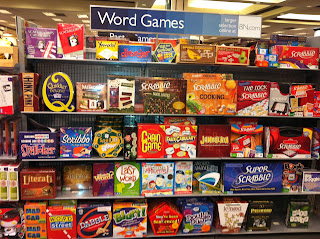One of the nice things about older students is that they are pretty independent and creative at the same time. Sometimes I found if I gave them some construction paper, colored pencils, and time, they managed the rest on their own. I have had students design elaborate cards and make a paper flower bouquets. I also had one student whose mom had passed away the year before so I was worried that it might upset her if we did a Mother’s Day activity. I encouraged her to make a card for her grandmother, but she actually still chose to make a card for her mom.
If you are going to do a Mother’s Day activity, it is important to just be sensitive and encourage students to also make things for grandmothers, stepmoms, aunts, or any female who has played an important role in their life.
A basic timeless activity to complete with students is to have them make a card or write a thank you letter to their mom. A note from the heart is always appreciated.

Some other ideas:
When I was in middle school, I did some different crafts with my big sister with Big Brothers Big Sisters. One of the crafts we did was take old or inexpensive picture frames and cover them. We used wrapping paper to cover some and decorated others almost like a collage. I cut out pictures from old magazines and calendars and glued them to old wooden frames (with good old Elmer’s). The pictures could overlap or be at an angle. The idea was that the frame itself was a collage of favorite things. I made one frame with pictures of horses, one with cats, and one for my Nana with pictures of different kinds of jewelry.
I think this would be a fun activity to do with students. You could take pictures of your students and put the picture inside the frame or frame a poem written by the student. The frame itself could be the gift. (I am going to try and make an example to post). You also could just have the student make a collage of family pictures or of the parent’s favorite things. Students could also draw pictures to be used in the collage.
I used a writing lesson last year from writingfix.com to go with the book I Love You the Purplest. They have the lesson and printables for you to use. Following the story, students write poems for their moms following the example from the book. Laura Candler has some printable coupons students can make for their mom. (I also think it would be cute to have students make like a little coupon book for their moms. Things like a promise to babysit younger siblings or vacuum or for a “free hug.”)
I was also thinking it might be fun to have student think of a personal award for their mom (sort of like some teachers do for their students at the end of the year).
Mother’s Day is a good opportunity to get students to think about why it is important to show others that we care. You can encourage them to appreciate their parents and reflect on why. You can download the award and than you note stationary here.
Writing Inspiration for Mother's Day
Poem: "Lunchbox Love Note" by Kenn Nesbitt
Students could talk about if they have every received a note from their mom. What would they put in a love not to their Mom?
Quote: "Mothers hold their children's hands for a short while, but their hearts forever."
Picture: This is the cover of Love You Forever by Robert Munsch.
I think this would be a fun story to read for Mother's Day. This was one of the few books my mom read to me and it was always special. You could have a class discussion on when students may have done something that felt unlovable, but their moms always loved them.








































